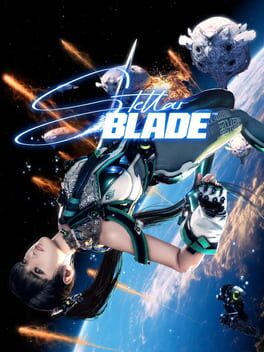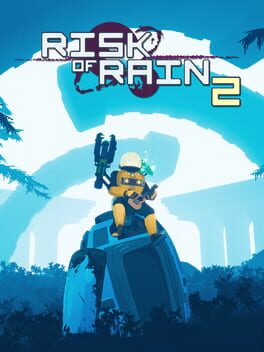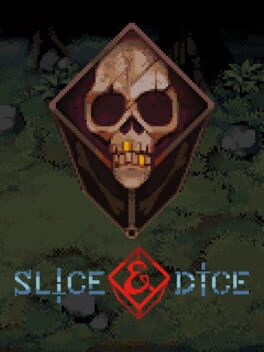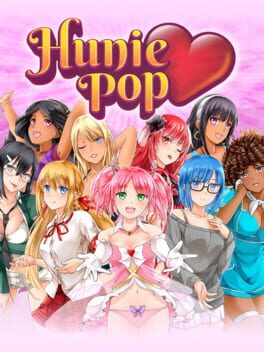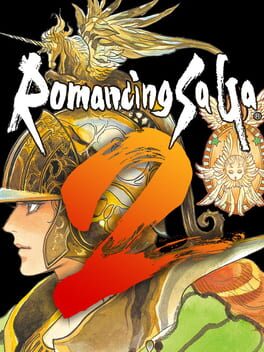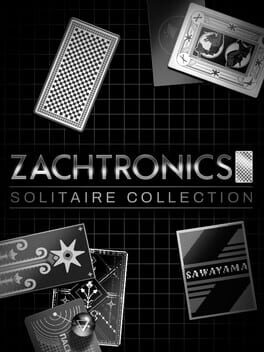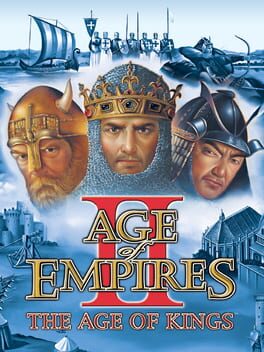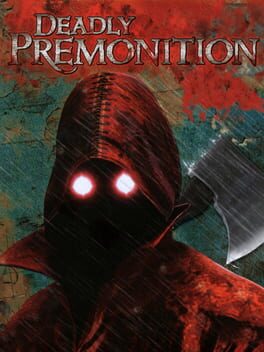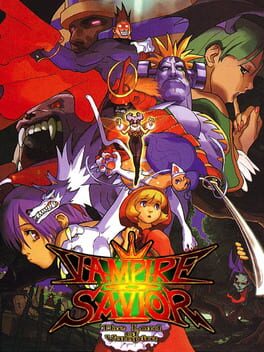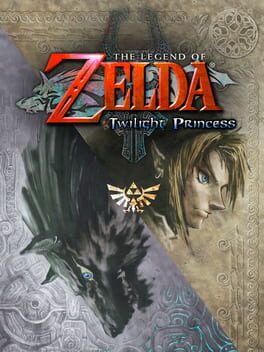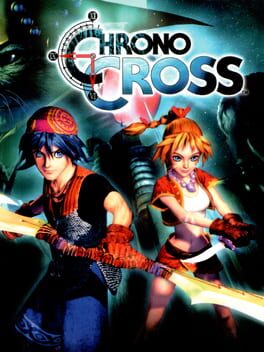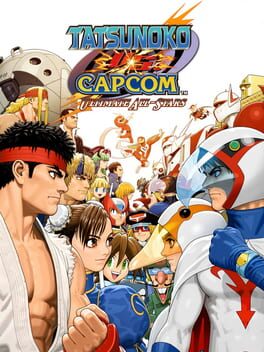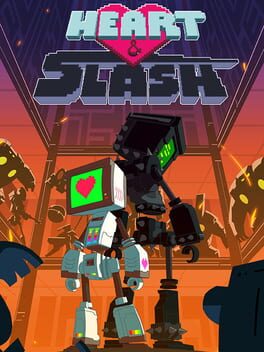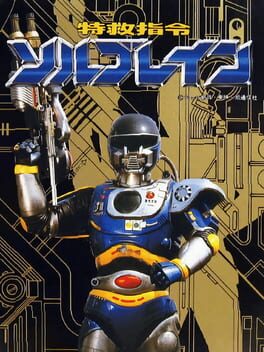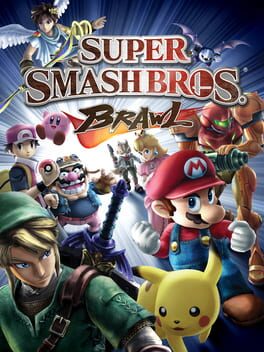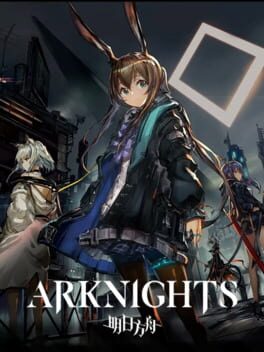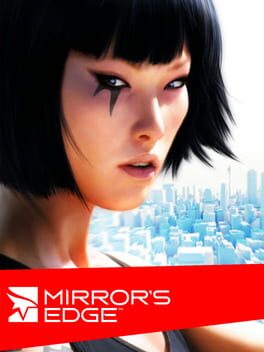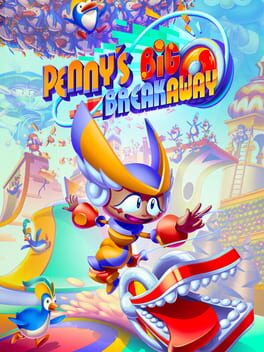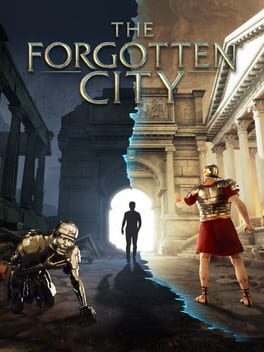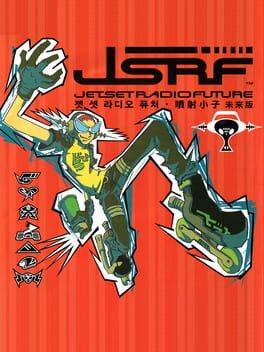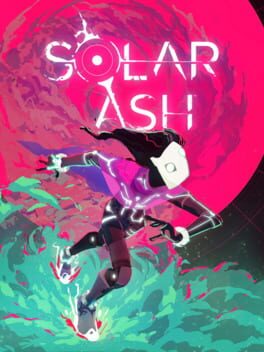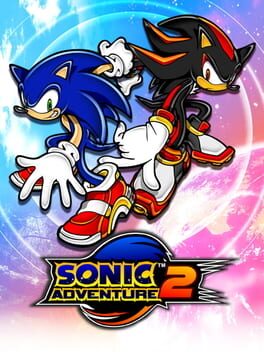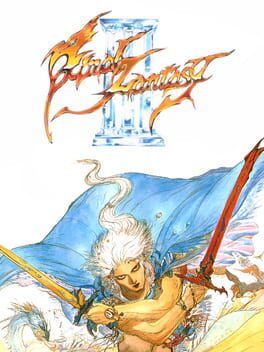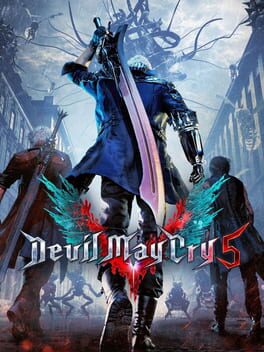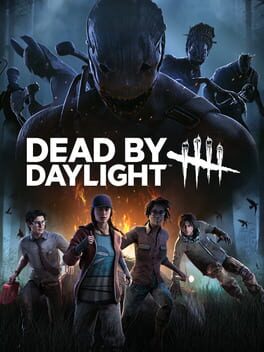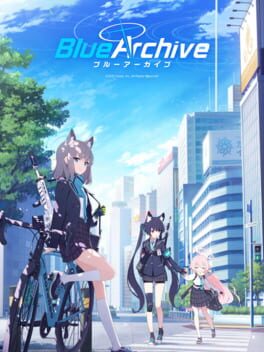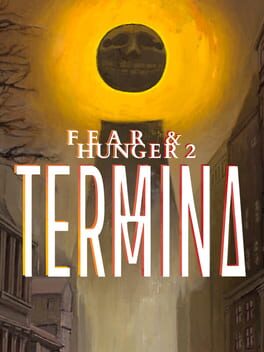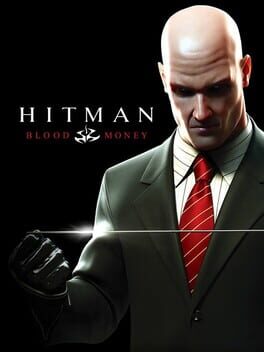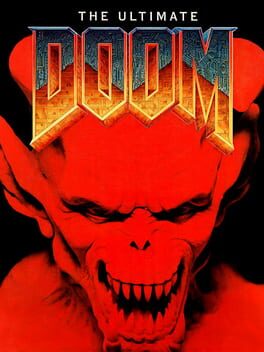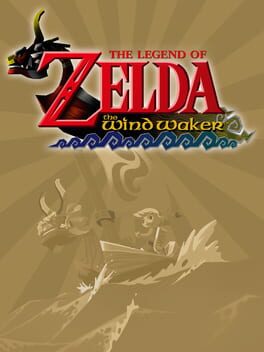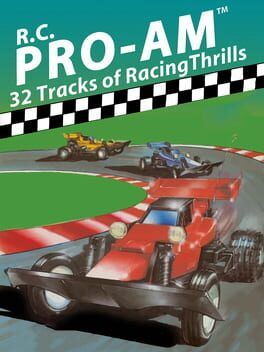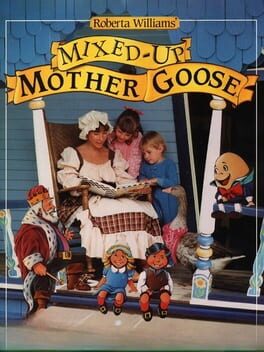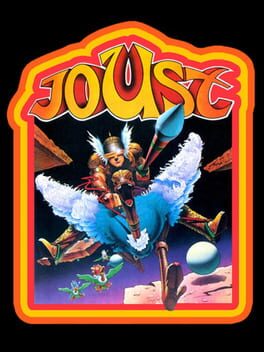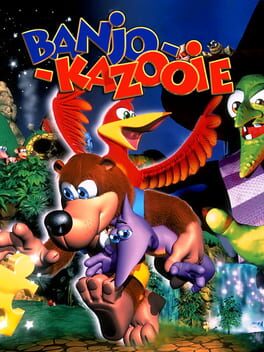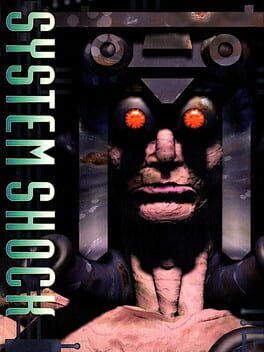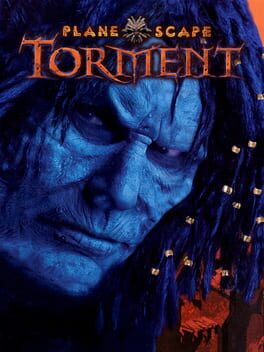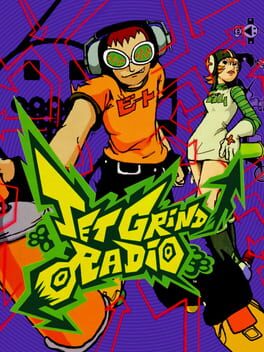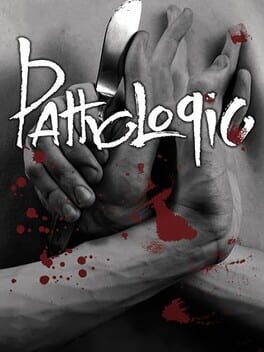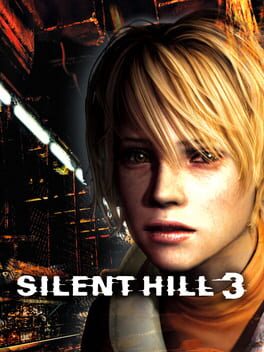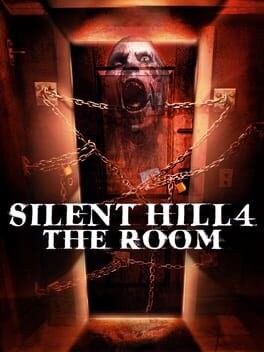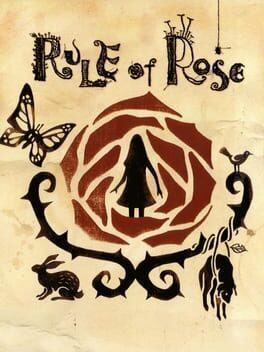trinity
98 reviews liked by trinity
Final Fantasy VII
1997
When it comes to Final Fantasy VII, I think there tends to be a general fixation on Midgar as a centralized point of identity for the game. And while I do think it's one of the best opening segments in maybe any videogame, what makes it work so well in the grand scheme of things is just how introspective the rest of the game feels when juxtaposed to its explosive sense of grandiosity.
Final Fantasy VII's globe trotting adventure isn't primarily defined by it's sense for theatrics, but by it's mellow tone and somber sensibilities. The towns you come across are oftentimes humble and restrained, carefully crafted with precision point environmental design and delicate cinematography. There's a tender sense of balance to found throughout the whole affair, as it seeks to comfort you just as often as it alienates you. That push-and-pull dynamic it shares with the player is such a key focal point as to what make the worlds of VII and VIII feel so utterly compelling to me, and I can't help but feel that the unquestioned contrast between the science and fantasy elements plays a major factor in how sheerly effective that relationship it is.
Aerith's fate is something I'll never forget, not just because of the effective dramatization found within that one moment, but because of how silent and truly felt her absence is across the rest of the game. A lot of people give this game grief for putting the snowboarding segment not even like twenty minutes later, but the fact that the game just moves on afterwards without dwelling on itself too hard is exactly what I think makes it brilliant. Final Fantasy VII allows its punctual moments to breathe and sink skin deep, and it knows that no amount of self indulgent dialogue commemorating Aerith would ever hit as hard as opening the party screen just to see a missing slot there.
Cloud might not be the person he says he is, but what he becomes through learning to open his heart to other people and show compassion makes him more of a hero than any mere SOLDIER could ever hope to be. He never has any major transformation in regards to physicality and utility, he doesn't have to. Just as he doesn't need to be told by someone that he's finally enough, he always was.
For every magnificent setpiece Final Fantasy VII has, there's a slew of soft spoken moments of beauty that truly make this game what it is, even up to its final moments. It ends the same way it began, a friendly face amidst a writhing future of uncertainty. That faint shimmer of hope shining just as bright as it always has.
Final Fantasy VII's globe trotting adventure isn't primarily defined by it's sense for theatrics, but by it's mellow tone and somber sensibilities. The towns you come across are oftentimes humble and restrained, carefully crafted with precision point environmental design and delicate cinematography. There's a tender sense of balance to found throughout the whole affair, as it seeks to comfort you just as often as it alienates you. That push-and-pull dynamic it shares with the player is such a key focal point as to what make the worlds of VII and VIII feel so utterly compelling to me, and I can't help but feel that the unquestioned contrast between the science and fantasy elements plays a major factor in how sheerly effective that relationship it is.
Aerith's fate is something I'll never forget, not just because of the effective dramatization found within that one moment, but because of how silent and truly felt her absence is across the rest of the game. A lot of people give this game grief for putting the snowboarding segment not even like twenty minutes later, but the fact that the game just moves on afterwards without dwelling on itself too hard is exactly what I think makes it brilliant. Final Fantasy VII allows its punctual moments to breathe and sink skin deep, and it knows that no amount of self indulgent dialogue commemorating Aerith would ever hit as hard as opening the party screen just to see a missing slot there.
Cloud might not be the person he says he is, but what he becomes through learning to open his heart to other people and show compassion makes him more of a hero than any mere SOLDIER could ever hope to be. He never has any major transformation in regards to physicality and utility, he doesn't have to. Just as he doesn't need to be told by someone that he's finally enough, he always was.
For every magnificent setpiece Final Fantasy VII has, there's a slew of soft spoken moments of beauty that truly make this game what it is, even up to its final moments. It ends the same way it began, a friendly face amidst a writhing future of uncertainty. That faint shimmer of hope shining just as bright as it always has.
Stellar Blade
2024
le goon session material? ? ? ?? gooba gooba gooba waaaow wooooaooaoaw aw yyeyeaowza wwwwwwhaaaaaaaaaaaaart the freaking hell??????????????????????? porn addict """ahh""" ohio game :sob: :joy: what the flippin heck?????? uhhhh P*GGERS???? aaaauuuhhhh hwhat the deuce? ? ? ?? vide o game hjas hot girlie? ? ?? the woke,. ?
Risk of Rain 2
2019
I really wanted to like this game. I played the original Risk of Rain back in 2015 and loved it. So when I heard that the game has gotten a sequel that I missed and that it was allegedly quite good I was excited. I picked it up with basically no hesitation.
I was unfortunately quite disappointed when I finally got into my first run. My first few runs were disappointingly easy, which surprised me. I guess perhaps my knowledge of its predecessor transferred over but the game never made me feel nearly as challenged as I did in the original. And when I did die, it always felt like it was a result of the game spawning enemies out of my line of sight to attack me from places I wasn’t aware of. Every new world the game thrust me into looked and felt exactly like the last, barren, ugly, and larger than necessary. I believe the worlds in the original Risk of Rain could get away with this scale given its 2D graphics but in Risk of Rain 2, the emptiness of these worlds is truly apparent. The gameplay is much the same, in Risk of Rain 2013, the limited movesets of the characters felt like a fun game of micromanaging cooldowns but in Risk of Rain 2 I found the most effective strategy to spam as many attacks as possible, especially as many of the few moves of each character blended into each other in aesthetics. The interesting items of Risk of Rain 1 were also greatly weakened by a transition to 3D. In the original when my character shot off a missile I could see where it ended up and be satisfied that it was helping to protect me. In the sequel the missile is equally likely to fly to a point I could not see and hit an enemy I didn't know was there.
In all, I simply believe the transition to 3D is a poor choice for the gameplay of Risk of Rain. It turns these massive, interesting, and beautifully sprited worlds of the original into bland, basic cell-shaded unity worlds that all look the same. Ironically, I believe the addition of a 3rd dimension strips a lot of the depth away from the original.
I was unfortunately quite disappointed when I finally got into my first run. My first few runs were disappointingly easy, which surprised me. I guess perhaps my knowledge of its predecessor transferred over but the game never made me feel nearly as challenged as I did in the original. And when I did die, it always felt like it was a result of the game spawning enemies out of my line of sight to attack me from places I wasn’t aware of. Every new world the game thrust me into looked and felt exactly like the last, barren, ugly, and larger than necessary. I believe the worlds in the original Risk of Rain could get away with this scale given its 2D graphics but in Risk of Rain 2, the emptiness of these worlds is truly apparent. The gameplay is much the same, in Risk of Rain 2013, the limited movesets of the characters felt like a fun game of micromanaging cooldowns but in Risk of Rain 2 I found the most effective strategy to spam as many attacks as possible, especially as many of the few moves of each character blended into each other in aesthetics. The interesting items of Risk of Rain 1 were also greatly weakened by a transition to 3D. In the original when my character shot off a missile I could see where it ended up and be satisfied that it was helping to protect me. In the sequel the missile is equally likely to fly to a point I could not see and hit an enemy I didn't know was there.
In all, I simply believe the transition to 3D is a poor choice for the gameplay of Risk of Rain. It turns these massive, interesting, and beautifully sprited worlds of the original into bland, basic cell-shaded unity worlds that all look the same. Ironically, I believe the addition of a 3rd dimension strips a lot of the depth away from the original.
Slice & Dice
2021
HuniePop
2015
---{ Graphics }---
☑ You forget what reality is
☐ Beautiful
☐ Good
☐ Decent
☐ Bad
☐ Don‘t look too long at it
☐ MS-DOS
---{ Gameplay }---
☐ Very good
☐ Good
☐ It's just gameplay
☐ Mehh
☑ Watch paint dry instead
☐ Just don't
---{ Audio }---
☑ Eargasm
☐ Very good
☐ Good
☐ Not too bad
☐ Bad
☐ I'm now deaf
---{ Audience }---
☐ Kids
☐ Teens
☐ Adults
☑ Grandma
---{ PC Requirements }---
☐ Check if you can run paint
☐ Potato
☐ Decent
☐ Fast
☑ Rich boi
☐ Ask NASA if they have a spare computer
---{ Game Size }---
☐ Floppy Disk
☑ Old Fashioned
☐ Workable
☐ Big
☐ Will eat 10% of your 1TB hard drive
☐ You will want an entire hard drive to hold it
☐ You will need to invest in a black hole to hold all the data
---{ Difficulty }---
☐ Just press 'W'
☐ Easy
☐ Easy to learn / Hard to master
☐ Significant brain usage
☐ Difficult
☑ Dark Souls
---{ Grind }---
☐ Nothing to grind
☐ Only if u care about leaderboards/ranks
☐ Isn't necessary to progress
☑ Average grind level
☐ Too much grind
☐ You'll need a second life for grinding
---{ Story }---
☐ No Story
☐ Some lore
☐ Average
☐ Good
☐ Lovely
☑ It'll replace your life
---{ Game Time }---
☐ Long enough for a cup of coffee
☐ Short
☐ Average
☐ Long
☑ To infinity and beyond
---{ Price }---
☐ It's free!
☐ Worth the price
☐ If it's on sale
☐ If u have some spare money left
☐ Not recommended
☑ You could also just burn your money
---{ Bugs }---
☑ Never heard of
☐ Minor bugs
☐ Can get annoying
☐ ARK: Survival Evolved
☐ The game itself is a big terrarium for bugs
---{ ? / 10 }---
☑ 1
☐ 2
☐ 3
☐ 4
☐ 5
☐ 6
☐ 7
☐ 8
☐ 9
☐ 10
---{ Author }---
☑ https://vojtastruhar.github.io/steam-review-template
☑ You forget what reality is
☐ Beautiful
☐ Good
☐ Decent
☐ Bad
☐ Don‘t look too long at it
☐ MS-DOS
---{ Gameplay }---
☐ Very good
☐ Good
☐ It's just gameplay
☐ Mehh
☑ Watch paint dry instead
☐ Just don't
---{ Audio }---
☑ Eargasm
☐ Very good
☐ Good
☐ Not too bad
☐ Bad
☐ I'm now deaf
---{ Audience }---
☐ Kids
☐ Teens
☐ Adults
☑ Grandma
---{ PC Requirements }---
☐ Check if you can run paint
☐ Potato
☐ Decent
☐ Fast
☑ Rich boi
☐ Ask NASA if they have a spare computer
---{ Game Size }---
☐ Floppy Disk
☑ Old Fashioned
☐ Workable
☐ Big
☐ Will eat 10% of your 1TB hard drive
☐ You will want an entire hard drive to hold it
☐ You will need to invest in a black hole to hold all the data
---{ Difficulty }---
☐ Just press 'W'
☐ Easy
☐ Easy to learn / Hard to master
☐ Significant brain usage
☐ Difficult
☑ Dark Souls
---{ Grind }---
☐ Nothing to grind
☐ Only if u care about leaderboards/ranks
☐ Isn't necessary to progress
☑ Average grind level
☐ Too much grind
☐ You'll need a second life for grinding
---{ Story }---
☐ No Story
☐ Some lore
☐ Average
☐ Good
☐ Lovely
☑ It'll replace your life
---{ Game Time }---
☐ Long enough for a cup of coffee
☐ Short
☐ Average
☐ Long
☑ To infinity and beyond
---{ Price }---
☐ It's free!
☐ Worth the price
☐ If it's on sale
☐ If u have some spare money left
☐ Not recommended
☑ You could also just burn your money
---{ Bugs }---
☑ Never heard of
☐ Minor bugs
☐ Can get annoying
☐ ARK: Survival Evolved
☐ The game itself is a big terrarium for bugs
---{ ? / 10 }---
☑ 1
☐ 2
☐ 3
☐ 4
☐ 5
☐ 6
☐ 7
☐ 8
☐ 9
☐ 10
---{ Author }---
☑ https://vojtastruhar.github.io/steam-review-template
Romancing SaGa 2
1993
maybe not the strongest game ever writing or story wise but conceptually and in execution for a jrpg from 1993 romancing saga 2 is incredibly interesting and a game i'll probably be thinking about for a long time. the only version available in english being an inferior remaster definitely doesn't do it any favors for a wider audience, but it's still something worth checking out if you care at all about the genre. my only hope from something like team asano or just the influx of more classic-inspired jrpgs in general is that we go back to an era where we get experimental titles like this again
I picked up Shenzhen Solitaire by Zachtronics a couple years ago and didn't think much of it. I played it a little and found it confusing and arcane. My mind couldn't think or plan ahead the way the game needed you to, and I got frustrated having to reset constantly.
For a long time I have struggled with feelings of inadequacy, in all aspects of my life. What is self-worth when you have so little with which to define one's self? The kind of destructive thinking that informs anything and everything you do. I have 3000+ hours on Paladins. More than half of that time I have probably spent frustrated- about my aim, my KDA, my game sense and knowledge. Constantly checking the stat trackers, getting discouraged that I can never be like the good players.
Shenzhen Solitaire has a way of sneaking up on you, as you sit there resetting the board. I got into the habit of clicking and slightly dragging a card over and over as I scan the board for possible routes, the way someone might shuffle or fidget with a physical deck of cards. The same droning ambient loop plays in perpetuity, to this day I don't even know if I really even like it. But I could listen to that loop for hours, and I did end up listening to it for hours. Turning it off was weird- the silence actually felt deafening.
Getting my first win was a revelatory moment, cause I had probably lost 50-100 times before I finally cleared the board. The feeling of accomplishment may have been the closest I had gotten to self-actualization in a long time. I have these moments of hyperfixation my entire life. They all matter to me in different ways, but solitaires a bit different. I felt like I was clearing cobwebs in my brain through constant iteration. I felt satisfied, and I realized I had stopped getting frustrated a long time ago. Awhile later, I reached 20 wins, and it clicked for me why it was working so well for me. It's because I was feeling, for a brief moment in the whirlwind of life, like I was actually at peace.
There's a lot of writing out there on what makes solitaire so compelling. Francine Prose wrote in Solitaire: Me vs. Me the following: "Like writing, it’s entirely private, the exertion is purely cerebral; you’re playing against yourself, against your previous best, against the law of averages and the forces of chance. You’re taking random elements and trying to put them together in a pleasing way, to make order out of chaos."
As I sit there, fighting against both my brain and the board state, I finally make a move that allows me to sort out an entire pile. I feel a feeling of elation that video games very rarely give me anymore. Its as if my thoughts have decayed by the constant low-level dread of depression, and I have sunk into the worst kinds of maladaptive coping mechanism. Competitive online gaming gave me an outlet to let out frustration and anxiety, but I rarely was feeling good whether I won or I lost. I was always on-edge, always annoyed at something. Even the act of running the game itself became a source of anxiety. Researching monitors, FPS optimizations, mouse polling rates and DPI. Everything felt like a constant tightrope and I think to myself, when did this stop being a game? When did I stop having fun doing this?
Zachtronics Solitaire Collection has allowed me a calm respite in the storm of my thoughts- a world in which I can both relax and challenge myself in a healthy manner. While regular Freecell and Klondike solitaire are very simple conceptually, they provide a solid blueprint for creatives to remix into extremely deep play experiences.Fortune's Foundation, with its beautiful tarot cards and complicated ruleset, is a particular standout. It has so many possible fail states that Zach included an Undo button, which is somewhat of a rarity in the popular Solitaire-likes. Even with the option, it's such a difficult game that I have yet to clear it. I have gotten close- so tantalizingly close- only to realize an action I made 50 moves ago has painted me in a corner. I realize it, I note where I went wrong, I reset, and I try again.
I think it has taught me to deal with failure in a far more healthy way. I come from a career field where making a mistake is met with open hostility, and I make many mistakes. It's so easy to internalize failure in the immediate moment as an inherent failing of either the self or others. In the smorgasboard of sight and sound that is competitive gaming, where its so easy to tie your self-worth with your mechanical skill, it becomes natural to spiral into the worst impulses.
The repetitive, calming nature of solitaire has become a therapeutic exercise for me, in ways I mostly imagined games to be. I long called gaming my coping mechanism- but it was hardly anything like that. Being able to find an experience like this, in solitude, has made all the difference for me. Gaming is a personal experience, as all art is. So what makes something like a standard deck of cards into a meditative gaming experience is just that.
In Solitaire, all that awaits failure is the humdrum ambience of the background and the opportunity to reset the board and try again. In solitude, I learned to center myself in the moment rather than allow my anxiety to consume my every thought. In solitude, I learned to give myself a chance.
For a long time I have struggled with feelings of inadequacy, in all aspects of my life. What is self-worth when you have so little with which to define one's self? The kind of destructive thinking that informs anything and everything you do. I have 3000+ hours on Paladins. More than half of that time I have probably spent frustrated- about my aim, my KDA, my game sense and knowledge. Constantly checking the stat trackers, getting discouraged that I can never be like the good players.
Shenzhen Solitaire has a way of sneaking up on you, as you sit there resetting the board. I got into the habit of clicking and slightly dragging a card over and over as I scan the board for possible routes, the way someone might shuffle or fidget with a physical deck of cards. The same droning ambient loop plays in perpetuity, to this day I don't even know if I really even like it. But I could listen to that loop for hours, and I did end up listening to it for hours. Turning it off was weird- the silence actually felt deafening.
Getting my first win was a revelatory moment, cause I had probably lost 50-100 times before I finally cleared the board. The feeling of accomplishment may have been the closest I had gotten to self-actualization in a long time. I have these moments of hyperfixation my entire life. They all matter to me in different ways, but solitaires a bit different. I felt like I was clearing cobwebs in my brain through constant iteration. I felt satisfied, and I realized I had stopped getting frustrated a long time ago. Awhile later, I reached 20 wins, and it clicked for me why it was working so well for me. It's because I was feeling, for a brief moment in the whirlwind of life, like I was actually at peace.
There's a lot of writing out there on what makes solitaire so compelling. Francine Prose wrote in Solitaire: Me vs. Me the following: "Like writing, it’s entirely private, the exertion is purely cerebral; you’re playing against yourself, against your previous best, against the law of averages and the forces of chance. You’re taking random elements and trying to put them together in a pleasing way, to make order out of chaos."
As I sit there, fighting against both my brain and the board state, I finally make a move that allows me to sort out an entire pile. I feel a feeling of elation that video games very rarely give me anymore. Its as if my thoughts have decayed by the constant low-level dread of depression, and I have sunk into the worst kinds of maladaptive coping mechanism. Competitive online gaming gave me an outlet to let out frustration and anxiety, but I rarely was feeling good whether I won or I lost. I was always on-edge, always annoyed at something. Even the act of running the game itself became a source of anxiety. Researching monitors, FPS optimizations, mouse polling rates and DPI. Everything felt like a constant tightrope and I think to myself, when did this stop being a game? When did I stop having fun doing this?
Zachtronics Solitaire Collection has allowed me a calm respite in the storm of my thoughts- a world in which I can both relax and challenge myself in a healthy manner. While regular Freecell and Klondike solitaire are very simple conceptually, they provide a solid blueprint for creatives to remix into extremely deep play experiences.Fortune's Foundation, with its beautiful tarot cards and complicated ruleset, is a particular standout. It has so many possible fail states that Zach included an Undo button, which is somewhat of a rarity in the popular Solitaire-likes. Even with the option, it's such a difficult game that I have yet to clear it. I have gotten close- so tantalizingly close- only to realize an action I made 50 moves ago has painted me in a corner. I realize it, I note where I went wrong, I reset, and I try again.
I think it has taught me to deal with failure in a far more healthy way. I come from a career field where making a mistake is met with open hostility, and I make many mistakes. It's so easy to internalize failure in the immediate moment as an inherent failing of either the self or others. In the smorgasboard of sight and sound that is competitive gaming, where its so easy to tie your self-worth with your mechanical skill, it becomes natural to spiral into the worst impulses.
The repetitive, calming nature of solitaire has become a therapeutic exercise for me, in ways I mostly imagined games to be. I long called gaming my coping mechanism- but it was hardly anything like that. Being able to find an experience like this, in solitude, has made all the difference for me. Gaming is a personal experience, as all art is. So what makes something like a standard deck of cards into a meditative gaming experience is just that.
In Solitaire, all that awaits failure is the humdrum ambience of the background and the opportunity to reset the board and try again. In solitude, I learned to center myself in the moment rather than allow my anxiety to consume my every thought. In solitude, I learned to give myself a chance.
Dragon's Dogma II
2024
for all of the ubiquity of the big-ass fantasy JRPG it hides a secret in its gargantuan underbelly: very few games even attempt to make the physical process of the traditional fantasy adventure fun enough to be the load-bearing part of the experience. you perform the decorum of an adventure, fighting fuckers and exploring (or pillaging?) new lands, but focus is scarcely allowed to rest on anything besides the most sexy and emblematic parts of the adventuring process.
more often the idea of a grand fantasy adventure is invoked for what is essentially narrative framing in a game where you manifest a power fantasy, or you engage in a story, or you exercise mechanical excellence. and these are all well and great but i think that many of us still have an unscratched itch for a game where you crest a hill with your familiar compatriots and gaze out over the landscape and you see a distant port village, rolling fields, and jagged mountains with a dragon’s cave, and you know that every landmark and many more you haven’t seen yet are the breadcrumbs that will lead you to the next visceral, novel adventure.
it’s incredibly easy to root for dragon’s dogma as it wants so desperately hard to be this game that we crave. and at its best, it is.
it’s difficult to think of another title that captures the full process of a self-guided adventure with such a level of literalization. the rate at which your party’s performance decays without rest and the stinginess of good vendors and services outside of cities is strong enough to pull even the most committed cartographer out of patrolling the map algorithmically and come back in to smell the hearthfire. there’s a humility to the landmarks in the way they attract intrigue and wonder without being ostentatious elden ring megastructures.
not just the world is constructed so that you get to experience the organically emergent qualities of an adventure, the same is true in the moment-to-moment gameplay as well. DD2 isn’t exactly a strand-type game, but the roughness of the world is so tangible it is not just seen, but felt. no shockers here, itsuno combat feels good, but more importantly, it further augments the broader vision of the game. with combat as physical and grounded as this, even my jaded ass had my action RPG goggles knocked off. instead of looking at these monsters through the lens of i-frames and super armor, you navigate combat through your physical intuition.
i’ve seen a lot of (justified) pushback to the screeching about mtx and performance that has accompanied DD2’s release, but some part of me believes that a large amount of dissent was always inevitable on release and people had to tangle with just how frictional dragon’s dogma could be. maybe in something more arcadey like monster hunter there’s more of a case for streamlining but nahhhh yall just bitchmode, can’t handle any of the spicier brain chemicals with your dopamine. don’t get me wrong, not only do I personally love the more prickly parts of the experience, but it’s absolutely necessary for the kind of vision at hand. this game would be destroyed if fast travel was readily available, quests would lose all their weight and urgency if they could be done whenever, and dragonsplague would be trivial if its downsides were ignorable. thousands of redditors, screaming in agony. a symphony to my tired ears.
dragon’s dogma 1 could not fully escape the allegations of being a menu game. dragon’s dogma 2 dodges this, retaining nearly all of the systems from DD1 that were interfaced through these menus but also ensuring far fewer interruptions to the meditative diegesis of its core gameplay loop.
however, the black mark on the original that the sequel cannot escape is that the game is tragically front-loaded. there comes a point, like there is in many of these games with a large exploration focus, where your hands stop fumbling in the dark and finally feel the walls of the room around you, or, as is more often, the cage around you. my guess is it’ll hit most people around an act and a half in as the enemy and encounter variety dries up. the reliance on elemental palette swaps does stretch the small roster a little farther but it also poisons the well a bit, as the fantasy of fighting a new kind of guy is intruded on by the palpable sense that this new creature is as they are for the sake of authorial convenience.
hilariously, i think they could’ve gotten it just about perfect if they toned down the density at which enemies show up in the overworld, which would’ve also made walking around a bit less rote. the game so deftly pushes you into its more structured downtime so it’s shocking how reluctant it is to you give you much at all while you’re out and about. but the way it is now yeah the game definitely becomes a meat grinder. once you reach the point where the enemies you’re fighting feel expendable, regardless of how good the combat feels, it cannot escape the sense of being an empty exercise. dragon’s dogma 2 often feels like the first level of a game extended far past its natural run, mirroring the legend of how its predecessor had to be released when only a quarter of its area was prepared. dragon’s dogma 2 is a much longer game than 1, but i think you could make a really compelling argument that there isn’t really any more meat on its bones in order to compensate.
for better or for worse, dragon’s dogma 2 might go down as the strongest possible indictment of the game that itsuno and so many others have been yearning for for decades. this game had capcom money, a guaranteed audience, and no shortage of talent, and yet it ends up falling this obviously short? but that’s the gamble you play with ambitious games. it’s a gamble worth playing. despite the questionable amount of gas in the tank, for stretches at a time, dragon’s dogma 2 makes that dream in our heads tangible. and, if you can buy into the fantasy, that alone is enough.
more often the idea of a grand fantasy adventure is invoked for what is essentially narrative framing in a game where you manifest a power fantasy, or you engage in a story, or you exercise mechanical excellence. and these are all well and great but i think that many of us still have an unscratched itch for a game where you crest a hill with your familiar compatriots and gaze out over the landscape and you see a distant port village, rolling fields, and jagged mountains with a dragon’s cave, and you know that every landmark and many more you haven’t seen yet are the breadcrumbs that will lead you to the next visceral, novel adventure.
it’s incredibly easy to root for dragon’s dogma as it wants so desperately hard to be this game that we crave. and at its best, it is.
it’s difficult to think of another title that captures the full process of a self-guided adventure with such a level of literalization. the rate at which your party’s performance decays without rest and the stinginess of good vendors and services outside of cities is strong enough to pull even the most committed cartographer out of patrolling the map algorithmically and come back in to smell the hearthfire. there’s a humility to the landmarks in the way they attract intrigue and wonder without being ostentatious elden ring megastructures.
not just the world is constructed so that you get to experience the organically emergent qualities of an adventure, the same is true in the moment-to-moment gameplay as well. DD2 isn’t exactly a strand-type game, but the roughness of the world is so tangible it is not just seen, but felt. no shockers here, itsuno combat feels good, but more importantly, it further augments the broader vision of the game. with combat as physical and grounded as this, even my jaded ass had my action RPG goggles knocked off. instead of looking at these monsters through the lens of i-frames and super armor, you navigate combat through your physical intuition.
i’ve seen a lot of (justified) pushback to the screeching about mtx and performance that has accompanied DD2’s release, but some part of me believes that a large amount of dissent was always inevitable on release and people had to tangle with just how frictional dragon’s dogma could be. maybe in something more arcadey like monster hunter there’s more of a case for streamlining but nahhhh yall just bitchmode, can’t handle any of the spicier brain chemicals with your dopamine. don’t get me wrong, not only do I personally love the more prickly parts of the experience, but it’s absolutely necessary for the kind of vision at hand. this game would be destroyed if fast travel was readily available, quests would lose all their weight and urgency if they could be done whenever, and dragonsplague would be trivial if its downsides were ignorable. thousands of redditors, screaming in agony. a symphony to my tired ears.
dragon’s dogma 1 could not fully escape the allegations of being a menu game. dragon’s dogma 2 dodges this, retaining nearly all of the systems from DD1 that were interfaced through these menus but also ensuring far fewer interruptions to the meditative diegesis of its core gameplay loop.
however, the black mark on the original that the sequel cannot escape is that the game is tragically front-loaded. there comes a point, like there is in many of these games with a large exploration focus, where your hands stop fumbling in the dark and finally feel the walls of the room around you, or, as is more often, the cage around you. my guess is it’ll hit most people around an act and a half in as the enemy and encounter variety dries up. the reliance on elemental palette swaps does stretch the small roster a little farther but it also poisons the well a bit, as the fantasy of fighting a new kind of guy is intruded on by the palpable sense that this new creature is as they are for the sake of authorial convenience.
hilariously, i think they could’ve gotten it just about perfect if they toned down the density at which enemies show up in the overworld, which would’ve also made walking around a bit less rote. the game so deftly pushes you into its more structured downtime so it’s shocking how reluctant it is to you give you much at all while you’re out and about. but the way it is now yeah the game definitely becomes a meat grinder. once you reach the point where the enemies you’re fighting feel expendable, regardless of how good the combat feels, it cannot escape the sense of being an empty exercise. dragon’s dogma 2 often feels like the first level of a game extended far past its natural run, mirroring the legend of how its predecessor had to be released when only a quarter of its area was prepared. dragon’s dogma 2 is a much longer game than 1, but i think you could make a really compelling argument that there isn’t really any more meat on its bones in order to compensate.
for better or for worse, dragon’s dogma 2 might go down as the strongest possible indictment of the game that itsuno and so many others have been yearning for for decades. this game had capcom money, a guaranteed audience, and no shortage of talent, and yet it ends up falling this obviously short? but that’s the gamble you play with ambitious games. it’s a gamble worth playing. despite the questionable amount of gas in the tank, for stretches at a time, dragon’s dogma 2 makes that dream in our heads tangible. and, if you can buy into the fantasy, that alone is enough.
Final Fantasy VIII
1999
ff8 is a game that is very hard for me to compile my thoughts on, but i thought i might as well try now that it's been a bit since i've finished it
i can get 8 not being somebody's favorite final fantasy, but this is such a beautiful piece of art to me that it feels like most of the game's bad reputation is just a mass gaslighting campaign perpetuated by early 2000s gaming magazines and kept alive by people who are scared of earnest emotionality in their video games. not everything that happens in this game is necessarily logical and it does have its flaws—the main antagonist is good but far from the series strongest and the disc 2 twist, while not nearly as bad as anyone has ever made it out to be, is delivered a little bit clumsily—but i feel like that's in service of being such an emotionally resonant game that it can barely be seen as a downside. the story of squall and rinoa is so beautiful to me in a way that so few love stories between a man and a woman can be for me and there were multiple points where i started to tear up a bit just because of how much i loved my experience with 8's story and characters.
when it comes to ff8's gameplay the junction system is unironically one of the few times that the atb battle system has been even remotely enjoyable, and while it isn't as strong mechanically as materias from 7 and the tutorials conveying the system in game aren't the best, i think it's a bit sad how having to engage with the mechanics differently is enough to put people off to the game's combat. with just a little bit more time in the oven and an audience more willing to engage with change, the junction system would probably be one of the most celebrated battle systems in any square enix jrpg with dickriders at the level of smirk and press turn from smt, and maybe in general final fantasy 8 would be more celebrated for the amazing game that it deserves to be seen as.
also gunblades are raw as shit and are by far the coolest weapon that any square enix game has ever had don't @ me
i can get 8 not being somebody's favorite final fantasy, but this is such a beautiful piece of art to me that it feels like most of the game's bad reputation is just a mass gaslighting campaign perpetuated by early 2000s gaming magazines and kept alive by people who are scared of earnest emotionality in their video games. not everything that happens in this game is necessarily logical and it does have its flaws—the main antagonist is good but far from the series strongest and the disc 2 twist, while not nearly as bad as anyone has ever made it out to be, is delivered a little bit clumsily—but i feel like that's in service of being such an emotionally resonant game that it can barely be seen as a downside. the story of squall and rinoa is so beautiful to me in a way that so few love stories between a man and a woman can be for me and there were multiple points where i started to tear up a bit just because of how much i loved my experience with 8's story and characters.
when it comes to ff8's gameplay the junction system is unironically one of the few times that the atb battle system has been even remotely enjoyable, and while it isn't as strong mechanically as materias from 7 and the tutorials conveying the system in game aren't the best, i think it's a bit sad how having to engage with the mechanics differently is enough to put people off to the game's combat. with just a little bit more time in the oven and an audience more willing to engage with change, the junction system would probably be one of the most celebrated battle systems in any square enix jrpg with dickriders at the level of smirk and press turn from smt, and maybe in general final fantasy 8 would be more celebrated for the amazing game that it deserves to be seen as.
also gunblades are raw as shit and are by far the coolest weapon that any square enix game has ever had don't @ me
One of my favorite units in any RTS are the AoE2 Teutonic Knights, which like many things in this have been historically modified for the sake of gameplay.
The real Teutonic Knights were a bunch of catholic dudes on horseback, while in this game they fight on foot and walk very slowly towards their opponents with their swords at their sides and beat the shit out of cavalry, trebuchets, and entire castles with nothing but that same sword. They're little tin can armor fellas in capes with stats equivalent to Mammoth Tanks from Command & Conquer, except they'd probably solo Kirov Airships too if you gave them jetpacks. Hell, could you imagine what would happen if you gave them a skateboard or a set of rollerblades? It's nightmarish imagining such a scenario, every archer would piss their pants at the sight of these guys sliding at them downhill with their swords pointed towards them.
Simplicity is sometimes the most endearing thing.
This had to have been my dad's favorite game ever at least on the ol' piece of shit Gateway PC. He was always a sucker for medieval warfare, and honestly I ain't exactly straying from the same path of interests he had, at least in this instance. It was an all too common occurrence to constantly hear the "under attack" alert ring out through the apartment. It was only slightly less funnier than the Empire Earth alert that was some pompous bastard bellowing "WE'RE UNDER ATTACK" even when an unthreatening bronze age slinger was bouncing stones off a space age chicken walker.
Between playing this, Balatro, and Picross I can't help but feel like I'm slowly turning into a hodgepodge of both my dad and my grandma. ;-;
The real Teutonic Knights were a bunch of catholic dudes on horseback, while in this game they fight on foot and walk very slowly towards their opponents with their swords at their sides and beat the shit out of cavalry, trebuchets, and entire castles with nothing but that same sword. They're little tin can armor fellas in capes with stats equivalent to Mammoth Tanks from Command & Conquer, except they'd probably solo Kirov Airships too if you gave them jetpacks. Hell, could you imagine what would happen if you gave them a skateboard or a set of rollerblades? It's nightmarish imagining such a scenario, every archer would piss their pants at the sight of these guys sliding at them downhill with their swords pointed towards them.
Simplicity is sometimes the most endearing thing.
This had to have been my dad's favorite game ever at least on the ol' piece of shit Gateway PC. He was always a sucker for medieval warfare, and honestly I ain't exactly straying from the same path of interests he had, at least in this instance. It was an all too common occurrence to constantly hear the "under attack" alert ring out through the apartment. It was only slightly less funnier than the Empire Earth alert that was some pompous bastard bellowing "WE'RE UNDER ATTACK" even when an unthreatening bronze age slinger was bouncing stones off a space age chicken walker.
Between playing this, Balatro, and Picross I can't help but feel like I'm slowly turning into a hodgepodge of both my dad and my grandma. ;-;

